Stack<Animal> myStack = new Stack<Animal>();
Animal a = new Animal();
a.setValueOfAnimal(5);
myStack.push(a);
a.setValueOfAnimal(15);
System.out.println(myStack.pop().getValueOfAnimal());
Above you see a sample main method.
The output will be : 15.
Is there anyway to make the object in the stack safe? I do not want the object in the stack to be modified when I modify the value of "Animal a".
Is this supported by any built - in Java class?
